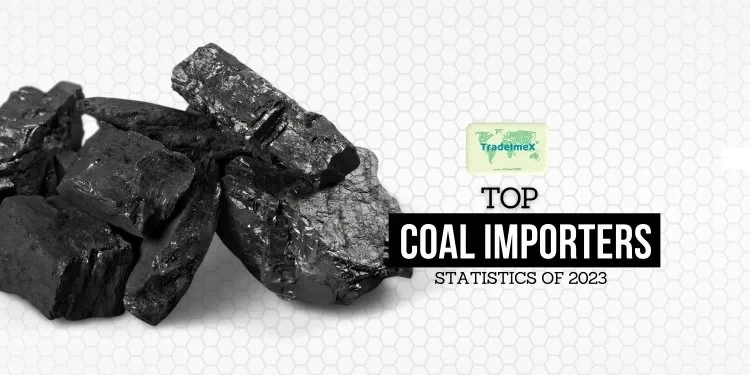In the dynamic landscape of global trade, coal remains a significant commodity, powering industries and economies worldwide. Understanding the trends in coal importation provides invaluable insights into economic shifts and energy demands. Here, we delve into the top coal importers statistics of 2023, unraveling key data and implications.
China: Leading the Global Coal Import Market
China, renowned for its voracious appetite for energy, continues to dominate the global coal import market. In 2023, its coal imports surged, reflecting the nation's relentless pursuit of energy security amidst rapid industrialization and urbanization. With its colossal infrastructure projects and expanding manufacturing sector, China's demand for coal remains insatiable, cementing its position as the world's largest coal importer.
India: Fueling Growth with Coal Imports
India, a burgeoning economic powerhouse, ranks prominently among the top coal importers of 2023. Despite initiatives to boost renewable energy, coal remains indispensable for meeting the nation's burgeoning energy needs. With a burgeoning population and ambitious infrastructural developments, India's reliance on coal imports underscores its role as a key player in the global energy landscape.
Japan: Balancing Energy Mix with Coal Imports
Japan, renowned for its technological prowess and innovation, continues to rely on coal imports to diversify its energy mix. In 2023, Japan's coal imports witnessed steady growth, driven by efforts to reduce dependency on nuclear energy post-Fukushima disaster. Despite investments in renewable energy, coal remains a crucial component in Japan's energy portfolio, ensuring stability and resilience in its power supply.
South Korea: Navigating Energy Transitions with Coal Imports
South Korea, a stalwart in technological advancements and economic development, will maintain its stature as a significant coal importer in 2023. Amidst transitioning towards cleaner energy sources, South Korea continues to rely on coal imports to meet its energy demands. With a strategic focus on balancing economic growth and environmental sustainability, coal plays a pivotal role in South Korea's energy transition journey.
Implications and Future Outlook
The top coal importer's statistics of 2023 underscore the enduring relevance of coal in the global energy landscape. While renewable energy gains traction, coal remains indispensable for meeting the growing energy demands of emerging economies and supporting industrialization. As nations navigate the complexities of energy transitions, coal imports serve as a crucial bridge toward a more sustainable and diversified energy future.
In conclusion, the statistics reveal the intricate interplay between economic development, energy security, and environmental considerations. Understanding the nuances of coal import trends provides policymakers, businesses, and stakeholders with invaluable insights for shaping energy policies, fostering sustainable growth, and mitigating climate change challenges.
By staying abreast of the evolving dynamics in coal importation, stakeholders can chart informed strategies that align with broader sustainability goals while ensuring energy security and economic prosperity in a rapidly changing world.



